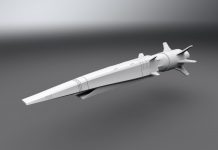
Rheinmetall to Acquire Hagedorn-NC, Strengthening Ammunition Supply Chain
Rheinmetall has announced plans to acquire Hagedorn-NC, a German producer of industrial-grade nitrocellulose, as part of its strategy to secure vital raw materials for manufacturing artillery propellants. This acquisition is the latest in a wave of efforts by European governments and defense companies to enhance or safeguard domestic production of munitions and explosives.
The company revealed that it intends to transition Hagedorn-NC’s operations toward the production of military-grade cellulose over the coming months. However, it assured that current civilian customers would continue to receive supplies “for the time being.”
According to Rheinmetall, this move addresses a crucial vulnerability in its supply chain. CEO Armin Papperger stated that the purchase “helps us resolve a key bottleneck in the production of propellants” and supports the company’s goal of vertical integration in ammunition manufacturing.
Since Russia’s invasion of Ukraine in 2022, European producers of artillery ammunition have been working rapidly to increase their capacity. Joint initiatives between the defense industry and the EU have mobilized over €1.5 billion ($1.6 billion) to expand production of shells, explosives, and propellants. The EU aims to produce 2 million artillery shells by 2025—up from a yearly capacity of 230,000 in early 2023.
Nitrocellulose, the primary ingredient in propellant charges, is essential for launching 155 mm shells from modern artillery systems, capable of reaching distances of up to 40 kilometers (25 miles). Modern artillery uses modular charges, allowing soldiers to stack propellant for extended range.
Rheinmetall is scaling up production of large-caliber ammunition, with a target of reaching a capacity of 1.1 million 155 mm rounds annually by 2027. With this acquisition, Hagedorn-NC will become Rheinmetall’s fourth nitrocellulose production facility, joining existing plants in Switzerland, Spain, and South Africa.
The purchase follows a similar move by the Czech defense company Czechoslovak Group (CSG), which acquired the nitrocellulose business of U.S.-based International Flavors & Fragrances in Germany last November. CSG aims to add ammunition-grade nitrocellulose production alongside its existing output for industrial uses like wood coatings and cosmetics.
Nitrocellulose is derived from cotton linters or wood pulp through a nitration process. Since April 2022, the EU has prohibited exports of nitrocellulose to Russia, and it extended the ban in June 2023 to include cotton linter pulp.
Rheinmetall emphasized that the acquisition, pending antitrust clearance, will bolster its role as a key ammunition supplier to NATO and support long-term self-reliance in sourcing essential components. The company also noted that the purchase would bring 90 new employees into its ranks. Meanwhile, CSG reported that more than 350 people work at the Walsrode nitrocellulose site it recently acquired.
Across Europe, efforts to restore or expand production of explosives and propellants are gaining momentum in response to Ukraine’s munitions shortages and NATO’s struggles to supply sufficient quantities. In France, propellant production resumed last month at Eurenco’s Bergerac plant after a 16-year pause. Similarly, Denmark has contracted Norway’s Nammo to reopen an ammunition facility shut down in 2020.
Poland is also investing heavily in domestic capabilities, with lawmakers approving around 3 billion zloty ($760 million) last November to enhance local ammunition production, particularly for 155 mm shells. The government has signed a preliminary agreement with fertilizer firm Grupa Azoty and defense company Polska Grupa Zbrojeniowa to develop nitrocellulose and propellant manufacturing capacity.
Rheinmetall currently produces nitrocellulose via its Nitrochemie joint venture with RUAG MRO Holding at a facility in Wimmis, Switzerland, in addition to sites in Murcia, Spain, and Wellington, South Africa. Hagedorn-NC, headquartered in Osnabrück with production in Lingen, specializes in industrial nitrocellulose used in coatings and inks.




